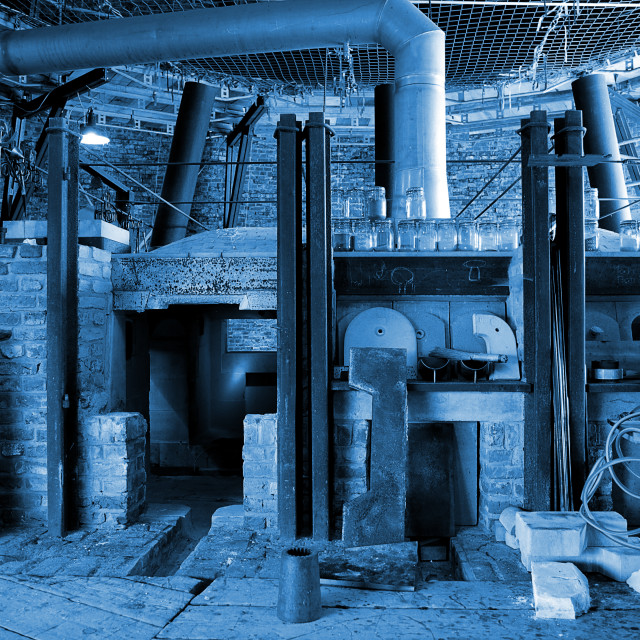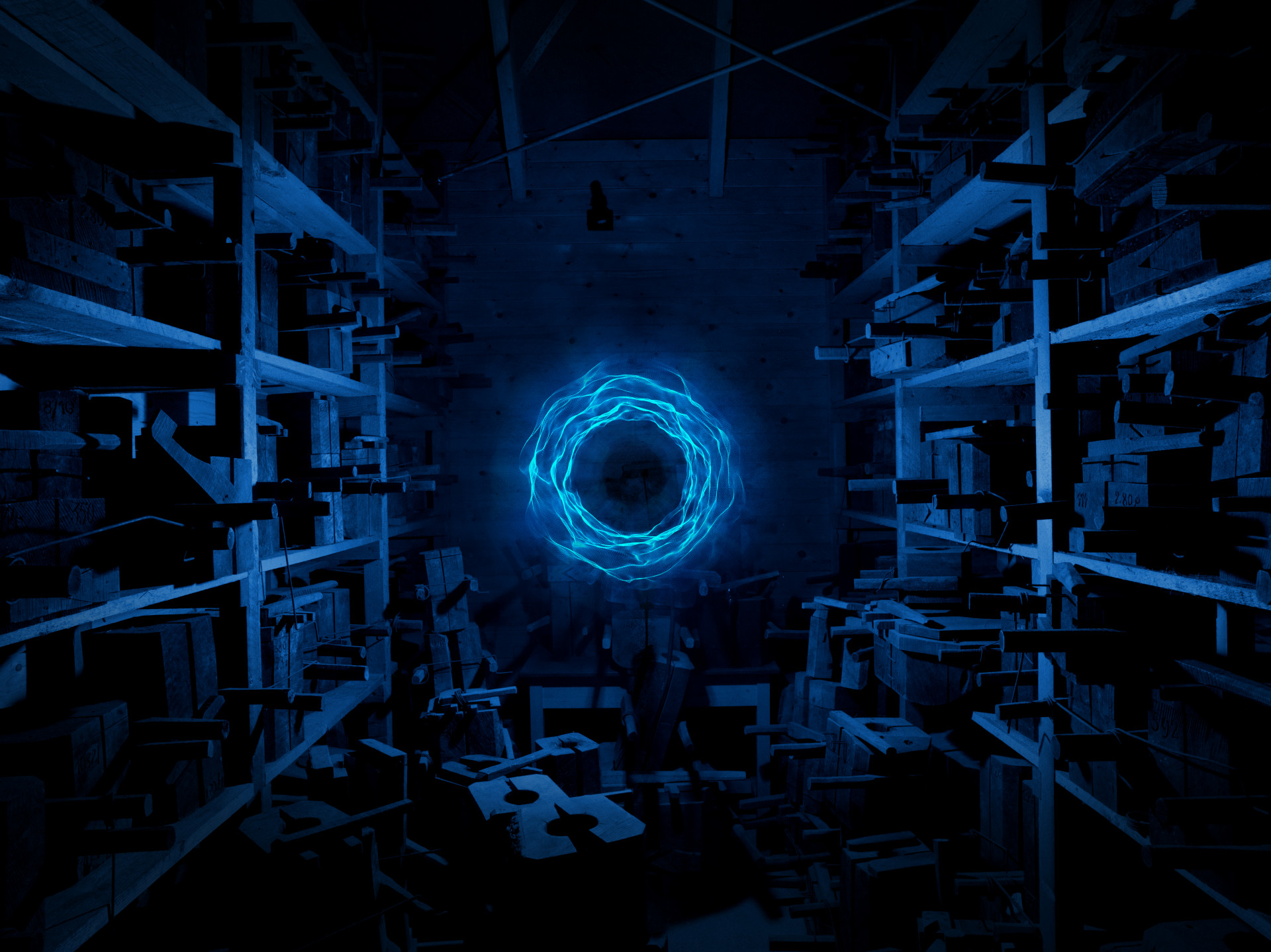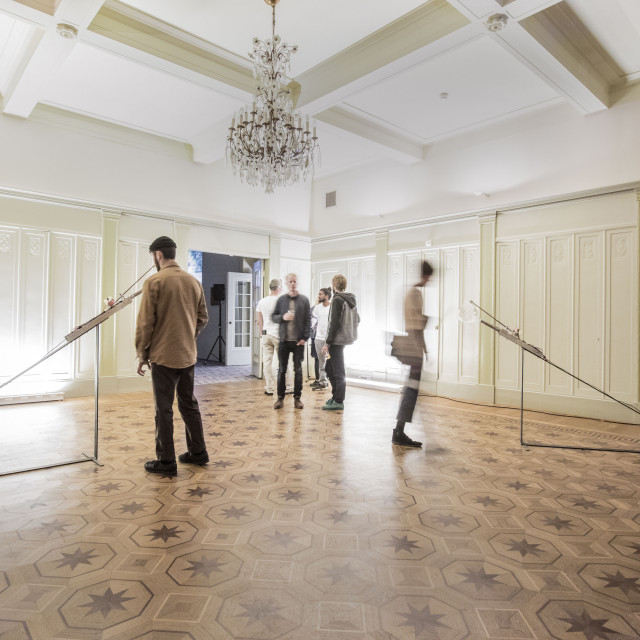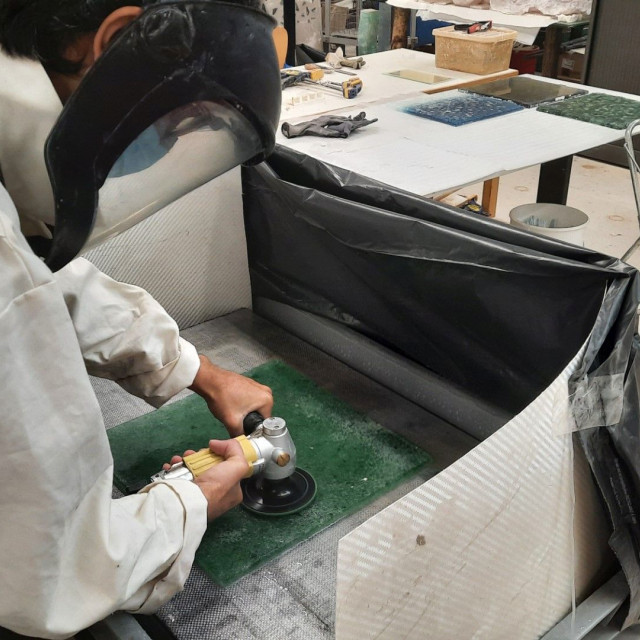Glashütte Gernheim
FUTUR_resources

In the Gernheim glass tower, one of the last structures of its kind in Germany, glassmakers with pipe, wooden mold, and scissors still process the glowing mass of sand, soda, and lime as they did when the smelter was founded 200 years ago. The challenging craft of glassmaking is an intangible cultural heritage and survives through the personal transmission of skills. The Gernheim Glassworks contributes to the handing down of manufacturing techniques at the original site and regularly collaborates with international glassmakers.


